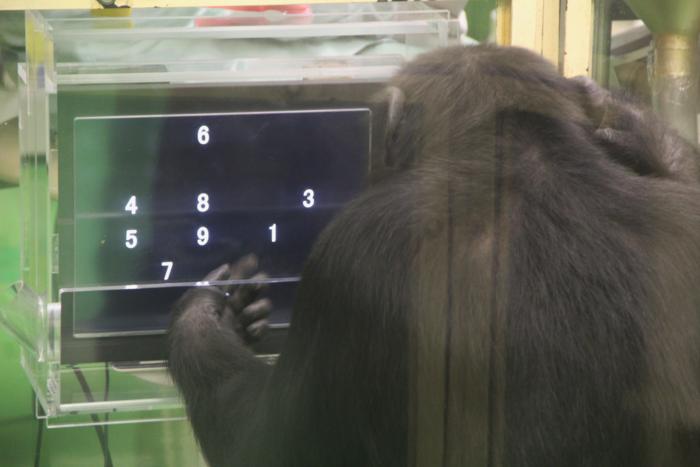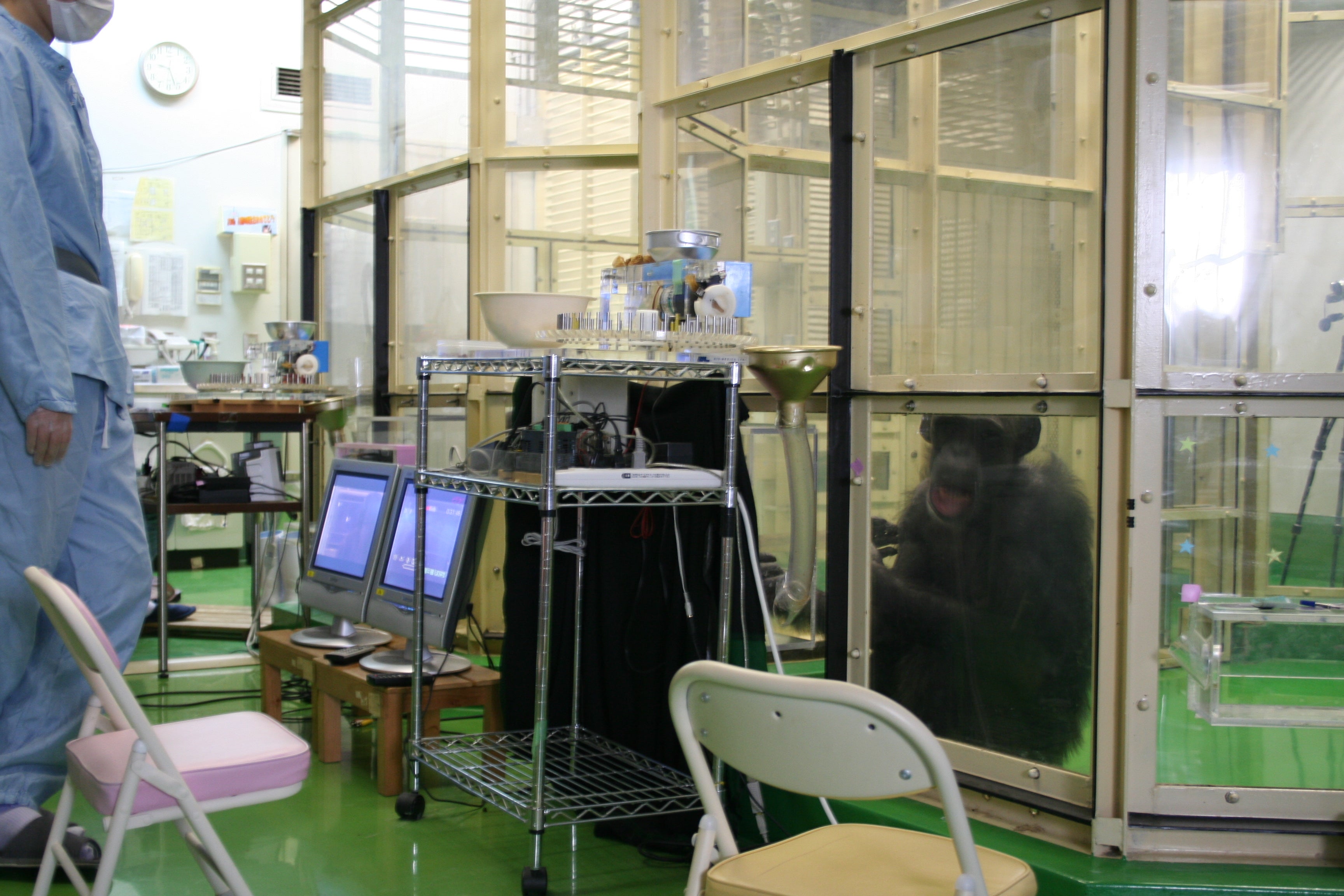Chimpanzees use computer better in tests when they have an audience, study finds
Scientists say effect of audience on performance may not be specific to humans
Chimpanzee performance on computer tasks seems to be influenced by the number of people watching, a new study suggests.
A human being’s performance may change for better or worse when they have an audience due to the tendency of “reputation management”.
When a human being pays attention to who is watching them, sometimes even subconsciously, it may affect their performance.
A similar “audience effect” appears to affect chimpanzees performing tasks on computers in lab experiments, researchers from Kyoto University in Japan say.

In a new study, published today in the journal iScience, the Japanese researchers conducted tests to see if non-human primates experience the audience effect as well.
After analysing thousands of sessions in which chimpanzees completed a touch screen task over six years, researchers found that the primates seemed to perform better on the most difficult number-based tasks as the number of experimenters watching them increased.
For the easiest task, though, they found that the chimpanzees performed worse when they were watched by more experimenters.

As to what specific mechanism underlies these effects, that remains a mystery, even in humans. “It was very surprising to find that chimpanzees are affected in their task performance by audience members, and by human audience members nonetheless!” study co-author Christen Lin says.
“One might not expect a chimp to particularly care if another species is watching them perform a task, but the fact that they seem to be affected by human audiences – even depending on the difficulty of the task – suggests that this relationship is more complex than we would have initially expected.”

The findings suggest the effect of an audience on performance “may not be quite so specific to our species”. “These characteristics are a core part of how our societies are largely based on reputation,” Shinya Yamamoto, another author of the study, says.
“If chimpanzees also pay special attention towards audience members while they perform their tasks, it stands to reason that these audience-based characteristics could have evolved before reputation-based societies emerged in our great ape lineage.”
The scientists call for further studies of apes to better understand how the “audience effect” evolved, and why it developed to begin with.
Join our commenting forum
Join thought-provoking conversations, follow other Independent readers and see their replies
Comments
Bookmark popover
Removed from bookmarks